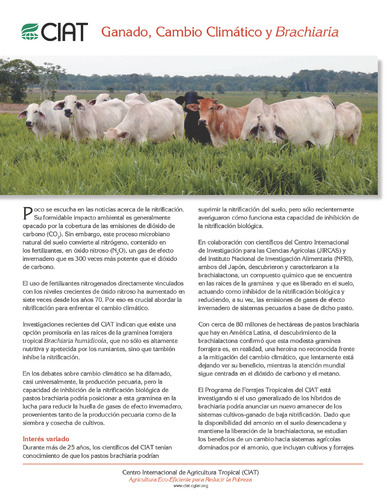Livestock, climate change, and brachiaria = Ganado, cambio climático y brachiaria
You don't hear much about nitrification in the news; its formidable environmental impact is usually eclipsed by coverage of carbon dioxide emissions. But this natural microbial process in soil causes the conversion of fertilizer nitrogen into nitrous oxide, a greenhouse gas 300 times more potent than carbon dioxide. With the seven-fold rise in the use of nitrogen fertilizers since the 1970s directly linked to booming levels of nitrous oxide, tackling nitrification is crucial to tackling climate change. Recent CIAT research shows that one promising option is contained in the roots of the tropical forage grass Brachiaria humidicola. As well as being highly nutritious and palatable to ruminants, brachiaria inhibits nitrification. Livestock production has been almost universally vilified in climate change debates, but brachiaria's biological nitrification inhibition capacity could see the grass take center stage in the push to significantly reduce the greenhouse gas footprint not just of livestock production, but arable farming too.

